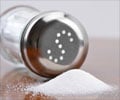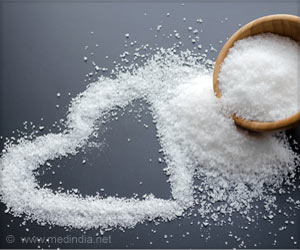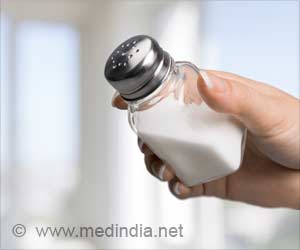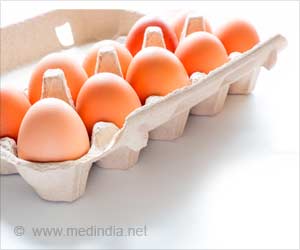Eating too much salt or sodium-rich diet can lead to gastrointestinal bloating, finds a new study.

"Bloating is one of the leading gastrointestinal complaints in the U.S. and can be exacerbated in some people by a high-fiber diet; our results suggest that they might be able to reduce that bloating, without compromising on healthy fiber, by lowering their sodium intake," says study senior author Noel Mueller, PhD, MPH, an assistant professor in the Department of Epidemiology at the Bloomberg School.
Bloating is estimated to affect up to a third of U.S. adults overall, and more than 90 percent of those with irritable bowel syndrome, bloating features a buildup of excess gas in the gut. The production of gas can be attributed to gas-producing gut bacteria breaking down fiber. There is also some evidence that sodium can stimulate bloating. The study by Mueller and colleagues is the first to examine sodium as a cause of bloating in the context of low and high-fiber diets.
The study analyzed data from the DASH-Sodium trial, which was co-led by Bloomberg School researcher Lawrence Appel, MD, MPH, and sponsored by the National Heart, Lung and Blood Institute.
Conducted at four clinical centers during 1998-99, it tested the DASH diet, a high-fiber diet which is relatively low in fat and high in fruits, nuts, and vegetables, against a low-fiber control diet. Each of the two diets was tested at three levels of sodium, and the 412 participants all had high blood pressure at the trial start.
The trial was set up chiefly to determine the effect of dietary sodium and other factors on blood pressure but included data on participants' reports of bloating data that Mueller and colleagues analyzed for the new study.
Advertisement
They found too that the high-fiber DASH diet increased the risk of bloating by about 41 percent, compared to the low-fiber control diet and men were more susceptible to this effect, compared to women. But the scientists also determined that sodium was a factor in bloating.
The key implication is that reducing sodium can be an effective way to reduce bloating and in particular may be able to help people maintain a healthy, high-fiber diet.
How sodium causes bloating is still being studied. Salt causes water retention, and that may be one factor. "We hypothesize that sodium intake also alters the gut microbiome in a manner that modifies bacterial sulfide production," Mueller says.
He and his team are now researching how bloating is affected by the major dietary macronutrients: protein, carbs, and fat.
Source-Eurekalert















